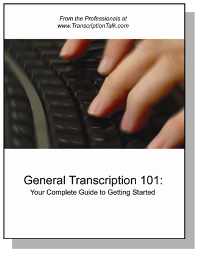I'm so pleased to present our first ever reader guest post today by one of our most frequent commenters, Margi Lowry!
-----------------------------------
Disclaimer: I am not a tax professional - I don’t even pretend to play one on TV! Please do not consider any advice in this article without consulting a tax professional!
It was in 2002 when I first started contemplating working from home. To be honest, I didn’t think it was possible in my profession – Legal Assistant/Secretary. I just didn’t see how it was possible without a ton of pavement-pounding and becoming a “Virtual Assistant.” I had, admittedly, had a lot of trouble with my previous brick-and-mortar employers because, as a single mom with two school-aged children, I was habitually tardy and/or absent from work when I should be staying late and after-hours. Thus, I was working through temporary agencies and hating every minute of it.
So when I was contacted by an international law firm with an offer to consider contracting as a work-from-home transcriptionist, my thought (after checking to make sure they were really a legitimate firm!) was that it was the answer to my prayers. After a long “getting acquainted” phase with the firm and equipment coordination, I would log into their computers, type, send my results via email. I eventually became quite good at “problem dictators” – understanding difficult speakers. I was also becoming known for my ability to burn the midnight oil for rush jobs. I loved it!
And then – my first self-employed tax season rolled around.
What I knew, intellectually but did not plan for, was that when you are a contractor, you are responsible for your own taxes. And not just the “employee” portion of your taxes, but the “employer” portion as well. That year, I ended up with a tax bill of $3,000.00 (give or take) when you add in interest and penalties. I spent the next three years recovering from that first tax season!
It’s really very simple – as someone who is self-employed, you are responsible for (currently) 15.30% of the “employer” and “employee” portions of the FICA – 12.4% for Social Security and 2.9% for Medicare – of your self-employment income of “$400 or more.” I especially love how the IRS states: “Only the first $94,200 of your combined wages, tips, and net earnings in 2006 is subject to any combination of the 12.4% social security part of SE tax, social security tax, or railroad retirement (tier 1) tax. Only the first $94,200.00. Hah!
The IRS wants you to play nice and send at least quarterly tax payments “Estimated Taxes” if your projected tax liability exceeds $1,000.00. The easiest way to accomplish this is to grab your last years’ tax return, look at how much you owed last year, and then if you think your tax liability will be comparable to last year’s, divide by 4 or 12 and send those payments in quarterly or monthly. If you’ve had a substantial increase or decrease in income, you’ll need to figure that in. According to the IRS, you should, ” Multiply your total earnings subject to SE tax by 92.35% (.9235) to get your net earnings under the regular method. See Short Schedule SE, line 4, or Long Schedule SE, line 4a.” The IRS has a very informative Small Business/Self-Employed section on their website at http://www.irs.gov/businesses/small/index.html.
The easiest way to make your estimated payments is to make them via the Electronic Federal Tax Payment System, or EFTPS. For information on how to enroll in EFTPS, you can click here. I find that monthly payments are a little more manageable with our tight budget and needs and thanks to EFTPS, tax season isn’t so stressful anymore!
Margi Lowry has been self-employed as a transcriptionist since 2002 – the first time she was bamboozled by the phrase, “How hard could it be!?” A Heckler at heart, she refuses to grow up, nor will she ever take life too seriously. Her personal, very amateurish (nothing professional about it!) blog can be found at http://margilowry.blogspot.com.
If you're interested in contributing a guest post, please contact us at transcriptiontalk (at) yourvirtualdesk (dot) com. We're open to any transcription-related topics!




















































